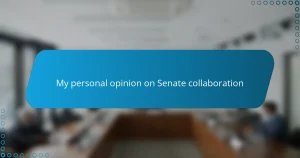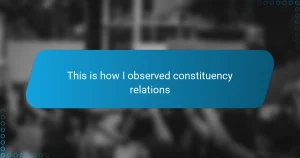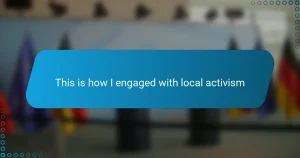Key takeaways
- Campaign finance is about more than money; it involves influence, access, and democracy itself.
- Current laws create a disparity between individual donations and the unrestricted funding from PACs and Super PACs, complicating transparency and fairness.
- Challenges in reform efforts include the power of entrenched interests, defining clear rules, and public trust issues due to secretive funding sources.
- Effective reform advocacy involves local engagement, education for awareness, and supporting transparency initiatives to restore accountability in the political system.
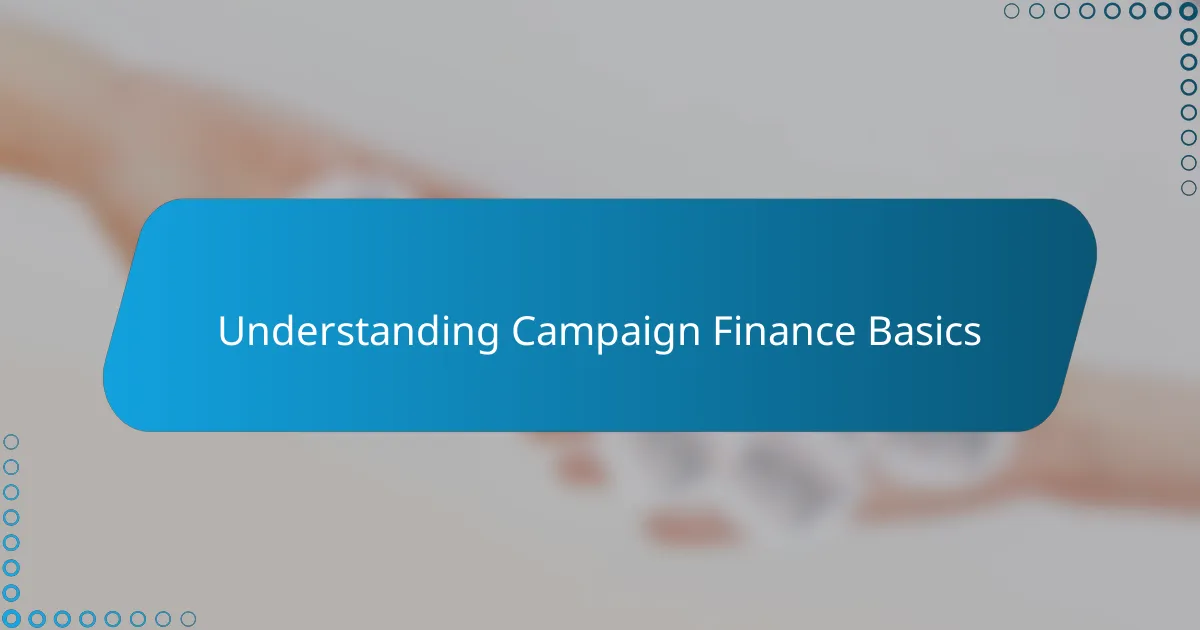
Understanding Campaign Finance Basics
When I first tried to wrap my head around campaign finance, I was surprised by how complex the system can be. At its core, campaign finance is simply about the money candidates raise and spend to get elected. But it’s more than just dollars changing hands—it’s about influence and access.
Have you ever wondered why some candidates seem to have endless resources while others struggle to get by? That discrepancy often comes down to how much money they can legally raise, who donates to their campaigns, and what rules govern those donations. Understanding these basics helps explain why reforms in this area feel urgent to me.
From my experience following elections, I realized that not all money is created equal in campaigns. There’s individual donations, Political Action Committees (PACs), and now these Super PACs that can raise unlimited funds. Each type shapes the political landscape differently, and knowing that helped me see why campaign finance isn’t just about numbers—it’s about democracy itself.
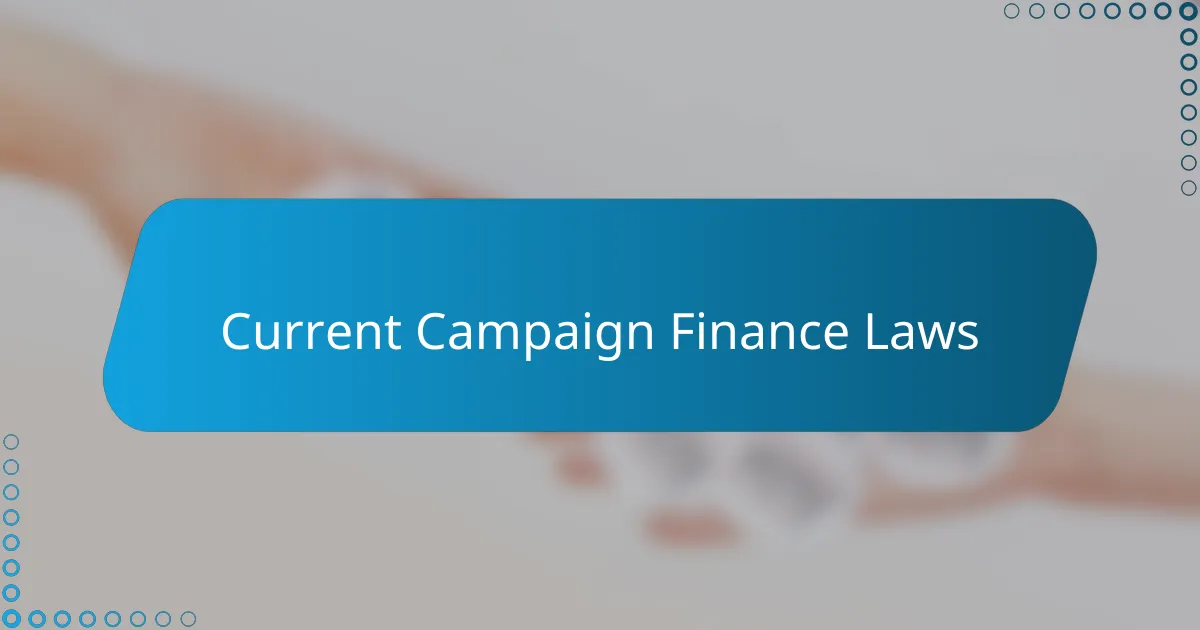
Current Campaign Finance Laws
Navigating current campaign finance laws feels like stepping into a maze, at least to me. For example, individual donations are capped at a certain limit, which seems fair on the surface, but then you have PACs and Super PACs stepping in with far fewer restrictions. Isn’t it strange how the law tries to balance fairness with freedom, yet often ends up creating loopholes that only deepen the divide?
I remember reading about how Super PACs can raise and spend unlimited amounts as long as they don’t directly coordinate with candidates. That distinction sounds clear, but in practice, it’s murky and sometimes feels like a legal sleight of hand. Does this kind of spending really reflect genuine public support, or does it just amplify the voices of the wealthiest donors?
Another aspect that caught my attention is the requirement for transparency—campaigns must disclose their donors, but many find ways around this with “dark money” groups. I often wonder how voters are supposed to make informed decisions when a significant chunk of funding operates in the shadows. To me, these laws feel like a patchwork that needs a serious overhaul to truly serve democracy.
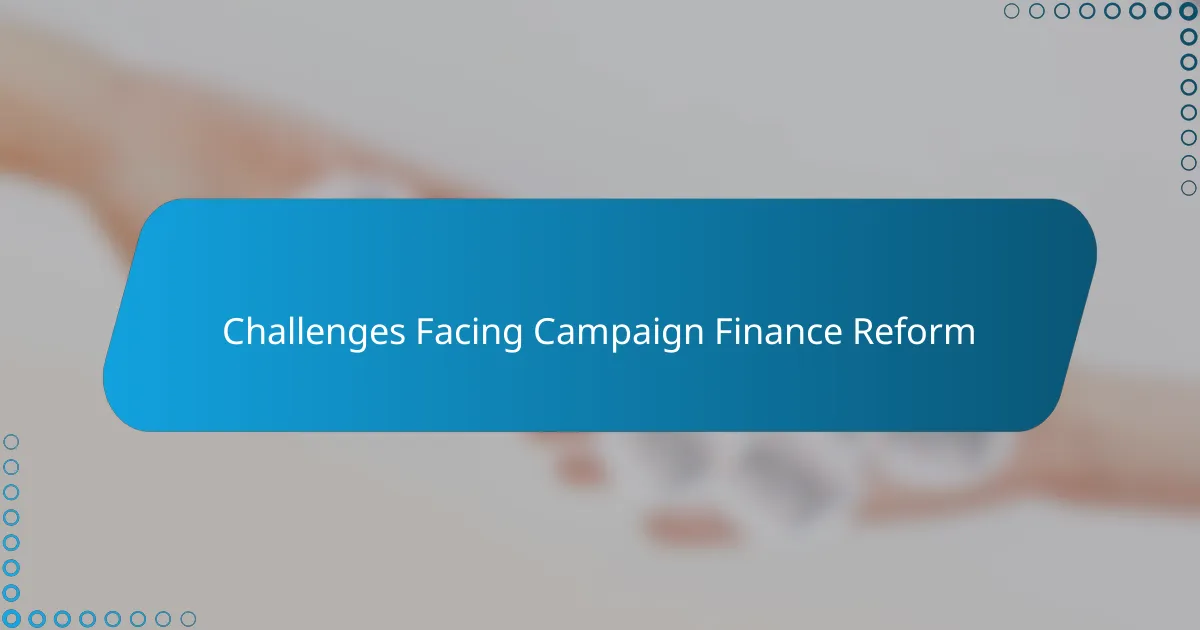
Challenges Facing Campaign Finance Reform
One of the biggest hurdles I see in campaign finance reform is the sheer power of entrenched interests benefiting from the current system. It’s tough to push for change when those with the deepest pockets are also the most influential voices in politics. Have you ever felt like the rules are stacked against ordinary voters? That’s exactly how I feel when I look at how moneyed interests resist reforms that could limit their sway.
Then there’s the challenge of defining clear and enforceable rules. I’ve noticed that every time Congress tries to tighten regulations, loopholes emerge almost immediately. It’s like a never-ending cat-and-mouse game—no matter how detailed the legislation, creative workarounds pop up to keep the flow of big money alive. This constant back-and-forth makes me question if meaningful reform can keep pace with the adaptability of political spending.
What really concerns me is how these challenges affect public trust. When voters hear about secret donors and shadowy funding groups, it breeds cynicism and disengagement. I’ve often wondered: How can democracy thrive if citizens think their voices are drowned out by invisible money? From where I stand, overcoming these obstacles is not just a legal battle but a crucial step toward restoring faith in our political system.
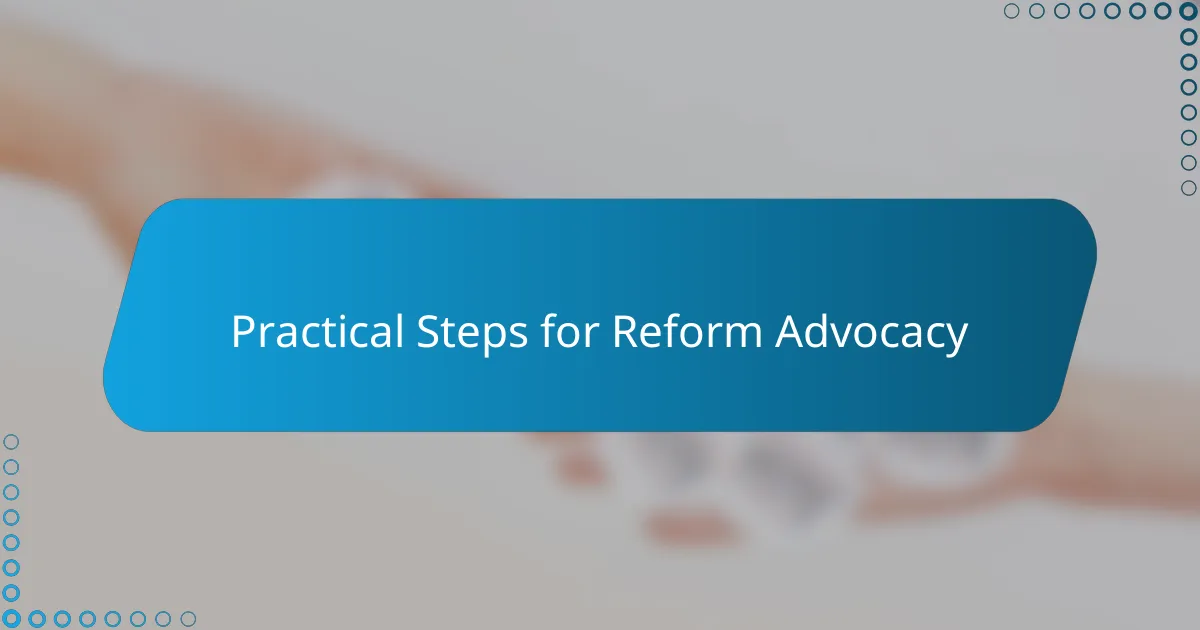
Practical Steps for Reform Advocacy
One step I’ve found effective in reform advocacy is starting locally. Engaging with city councils or state legislatures can feel more manageable and impactful than tackling federal reforms all at once. Have you noticed how grassroots efforts often build momentum from the ground up? That’s exactly where I think meaningful change begins.
Another action that really matters is educating others. When I share what I’ve learned about campaign finance with friends or community groups, the response is often surprise mixed with determination. It’s amazing how awareness can transform frustration into collective energy for change—don’t underestimate the power of informed conversations.
Finally, supporting transparency initiatives has become a central part of how I advocate. Campaign finance reform isn’t just about limiting money—it’s about shining a light on where it comes from. When voters can see the flow of funds clearly, it builds accountability, and frankly, that’s essential if we want to restore trust in the system. Wouldn’t you agree that transparency is the foundation for any lasting reform?
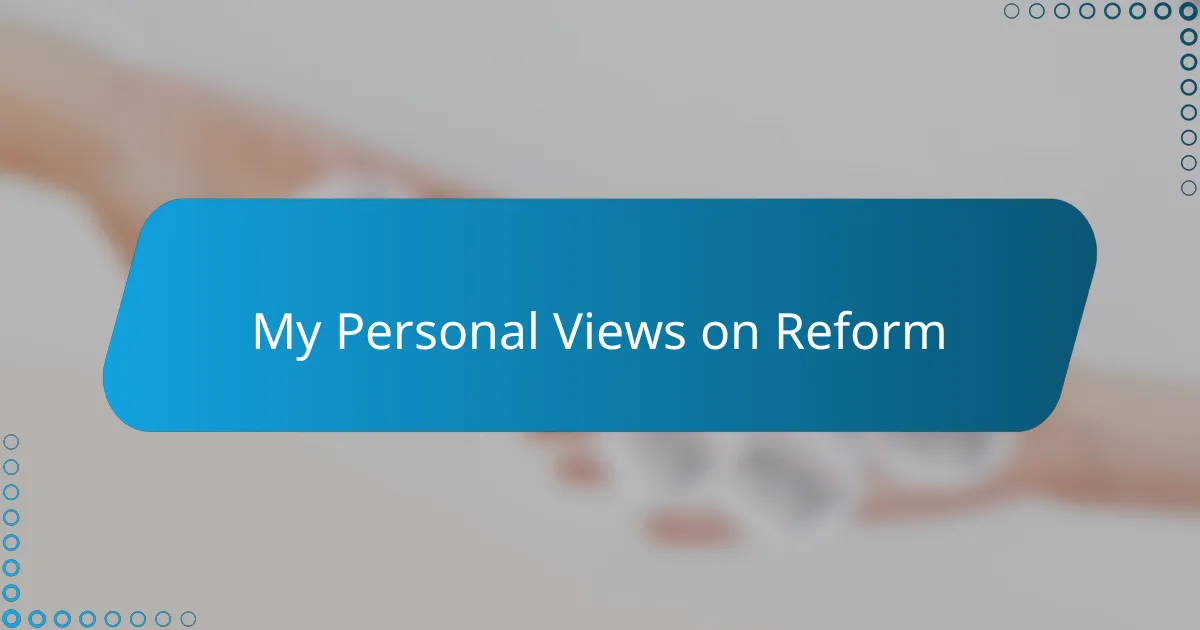
My Personal Views on Reform
When I think about campaign finance reform, what strikes me most is the need for balance—how do we limit undue influence without stifling genuine political participation? From my observations, overly restrictive rules might hinder grassroots candidates, but without reform, wealthier donors hold disproportionate power. It’s a tricky line to walk, and I often ask myself if we’re willing to accept the compromises that come with meaningful change.
I’ve also realized that any reform worth advocating for must be practical and enforceable. After witnessing repeated loopholes being exploited, I’m skeptical of proposals that look good on paper but lack mechanisms to close these gaps. That experience has taught me to favor incremental changes that build momentum rather than sweeping reforms that risk being undermined quickly.
Ultimately, I believe reform isn’t just about legislation; it’s about shifting the culture around money and politics. When I see communities rallying for transparency and accountability, it gives me hope that change is possible. But I can’t help but wonder—how many more cycles of frustration will we endure before reform truly takes root? From my perspective, that sense of urgency drives my support for ongoing efforts, even if the path is slow and complex.
